Jack Whalley

Jack is a PhD researcher and lecturer within the school of Justice, Security and Sustainability at Staffordshire University, teaching sociology, criminology and policing. His thesis explores the newly emerging learning strategies and impact on pedagogical practices at further and higher education levels, with the intention to provide a series of recommendations contributing towards best practice. He has previously worked on a research project alongside Warwickshire police regarding victimology and is currently working with Dr Leanne Savigar-Shaw, in collaboration with Gloucester Constabulary, exploring the utility and efficacy of community speedwatch. He has a keen interest in research methodology, creative dissemination, research ethics, education, sociological theory, and victimology.
Mia Abbott
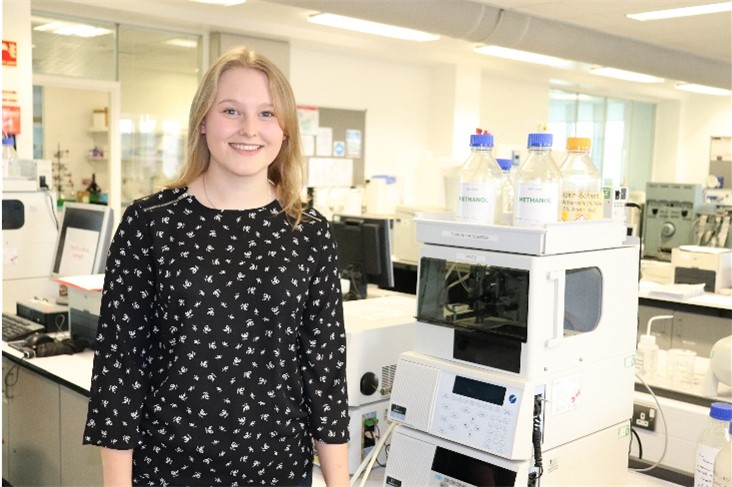
Mia’s PhD research surrounds the development of detection and identification of new synthetic cannabinoids concealed in prison letters. The aims of Mia’s PhD research are to investigate the use of ion mobility spectrometry, specifically the Itemiser3Enhanced® in collaboration with Rapiscan Systems, to detect synthetic cannabinoids, to predict potential future synthetic cannabinoids that could enter prisons and establish effective methods for disseminating research to relevant organisations within the United Kingdom’s Criminal Justice System.
LinkedIn: www.linkedin.com/in/mia-abbott1996
Space
Dr Hannah Bennett

Hannah is a full time Post Graduate Researcher at Staffordshire University. Prior to this she completed a PhD in Criminology, and a PgDip/MA in Transnational Organised Crime with Staffordshire University. She holds a Bachelor of Laws and a Bachelor of Politics and has completed a Diploma in Cyber Security. Alongside her academia, she works within law enforcement..
LinkedIn: https://www.linkedin.com/in/hannahcbennett/
Twitter: https://twitter.com/hannahbennett24
https://whatworks.college.police.uk/Research/Research-Map/Pages/ResearchProject.aspx?projectid=807
Space
Thomas Bird
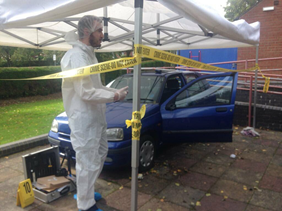
Thomas is a PhD researcher in Forensic Science that specialises in developing forensic strategies for addressing consent in sexual offences. His research is to explore the key issues of consent. From this the aim is identify common types of absences of consent and areas where knowledge is lacking or should be further explored to ultimately contribute to the wider community. The main body of his research primarily focuses on forensic biology based practices such as the use of RNA degradation in biological samples to determine the age of a deposited stain.
Researchgate: https://www.researchgate.net/profile/Thomas_Bird4
LinkedIn: www.linkedin.com/in/thomas-bird
Space
Professor Elizabeth Boath
Liz Boath is Professor of Health and Wellbeing at Staffordshire University. Liz was awarded a National Teaching Fellowship of the Higher Education Academy in recognition of her innovative contribution of service user and carer involvement in education. She has a background in psychology and is a Certified Advanced Emotional Freedom Techniques Practitioner, Clinical Hypnotherapist, Coach and Mentor. Liz is an active researcher, educationalist and author and has published over 60 peer reviewed publications and co-authored eight books. Her research expertise is in the field of mental health and wellbeing.
Space
Dr Sarah Fox
Sarah completed her PhD in law – relating to movement across borders and the conflict between safety, security and free movement.
She achieved a prestigious Fulbright postdoctoral professorship for 12-months to the USA in 2015-2016. Her expertise relates to law, policy and legal aspects across the subject areas of EU law, criminal law, international law and transport law (all modes – specialising in air law and policy; UAV’s, other autonomous systems – plus evolving technologies). Sarah is an expert adviser to various UK, European and International Commissions and specialist bodies – including: Europol; the EU Parliament/UK Parliament; MAVCOM.
Sarah’s Profile: https://www.staffs.ac.uk/people/sarah-jane-fox
Heading
Alex Haycock
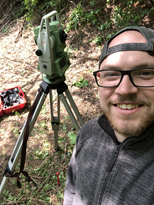
Alex originally came to Staffordshire University to undertake a degree in Forensic Science (With placement year). During his placement year, he had the opportunity to work on a variety of projects primarily within the field of Holocaust Archaeology. He had the opportunity to train and use a structured light scanner, sparking interest in how this could be applied to current research. As a result, he has begun a PhD in Holocaust Archaeology. He has also undertook fieldwork projects in the UK, Czech Republic, Ukraine and Cyprus and has worked on cold cases with multi-national teams form UK, Germany, and Australia.
LinkedIn: Alex Haycock | LinkedIn
Space
Nikolaos Kalantzis
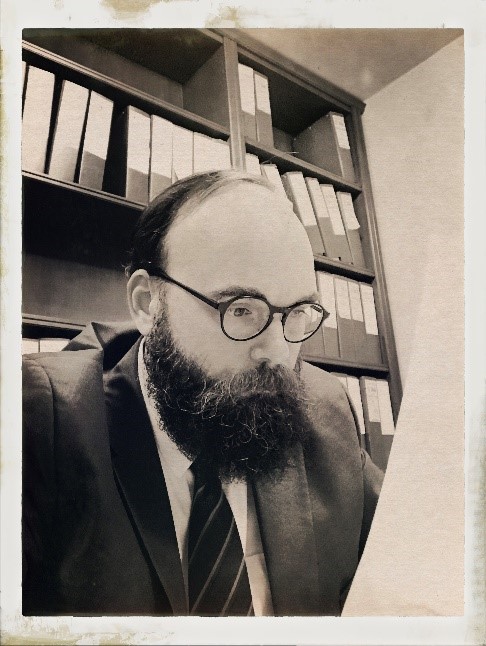
Nikolaos (Niko) Kalantzis has a BSc in Physics, a PgD in Forensic Science & an MSc in Questioned Documents and he holds a diploma in Questioned Documents (FSSocDip) from the Chartered Society of Forensic Science of which he is a Professional Member and an Assessor. He works both for the courts of Athens and Piraeus and handles private cases as an examiner and manager of Chartoularios Laboratory, an associate member of the European Network of Forensic Handwriting Experts (ENFHEX – part of ENFSI). Niko has been elected in the Steering Committee of ENFHEX (R&D Liaison) since September 2019.
Niko served as Visiting Research Fellow from 2008 to 2018 and since 2018 he is a researcher with Staffordshire University, participating in experiments and research projects as well as delivering lectures at undergraduate and postgraduate levels. The main area of research for the last years is Digitally Captured Signatures (biometric signatures) and Niko is a part of the STEFA G8 research group, looking into the relation of pen & paper signatures to Digitally Captured Signatures.
Niko is also a member of the Arab Society of Forensic Science and Forensic Medicine, working towards unification and standardization of procedures.
Space
Zack Kowalske
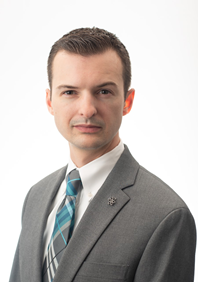
Zack Kowalske currently serves as a police Crime Scene Detective in the United States. Having served in law enforcement since 2009, the majority of his career has been spent as a Detective in the Crime Scene Investigations Unit. In 2018, he founded Delta-5 Forensic Laboratories, in which he acts as a forensic consultant for both prosecution and defense criminal cases, in addition to his law enforcement career. Mr. Kowalske holds a Masters of Science with a Concentration in Forensic Science, and a Bachelor of Science in Investigative Forensics with a Minor in Terrorism and Critical Infrastructure. Currently he is pursuing a Doctorate in Forensic Science at Staffordshire University, with his research focusing in the discipline of bloodstain pattern analysis.
He is a graduate of the National Forensic Academy (United States), where he was awarded the Dr. William Bass Award for Outstanding Achievement in the Field of Forensic Investigations. He was first certified as a Crime Scene Investigator, by the International Association for Identification, in 2007, and he is also an IAI board certified Crime Scene Reconstructionist. Mr. Kowalske specializes in Bloodstain Pattern Analysis and Shooting Incident Reconstruction and is court qualified as an expert witness in Crime Scene Investigations, Crime Scene Reconstruction, Crime Scene Analysis, and Bloodstain Pattern Analysis. He has published both Journal and Magazine articles on Reconstruction and Bloodstain topics.
Space
Sarah Krahenbuhl
Sarah specialises in the investigative processes relating to child victims and witnesses of crime. She has focussed on the impact of repeated questions within interviews but has also conducted research into the effect of Registered Intermediaries. Currently Sarah’s main focus is on attrition in cases involving child witnesses and victims. She is currently engaged in a large-scale research study with Norfolk Police examining where attrition occurs, case specific details, associated procedural practices, and investigative interviewing quality. Sarah is also conducting a project examining evidence presentation modality and mock juror recall.
ORCiD: http://orcid.org/0000-0002-4099-9416
Space
Afsané Kruszelnicki
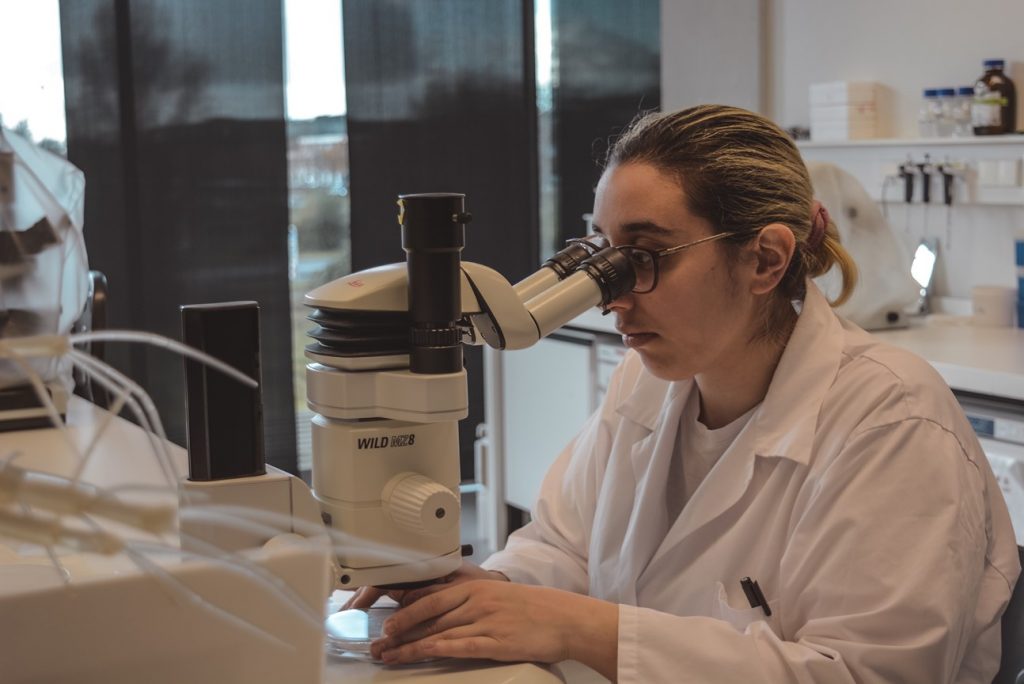
Afsané Kruszelnicki is currently undertaking her PhD at Staffordshire University investigating the persistence of trace evidence (e.g. fibres, hair, pollen, glass etc) on fabrics in challenging aquatic environments. She began her research on fibre evidence for her undergraduate dissertation, developed this to encompass pollen evidence for her MSci thesis and is now continuing this research on other trace evidence in her PhD. Her research will emphasise the importance of trace evidence in criminal investigations with challenging aquatic environments and provide much needed knowledge to aid in its interpretation.
Space
Ross T Kwok
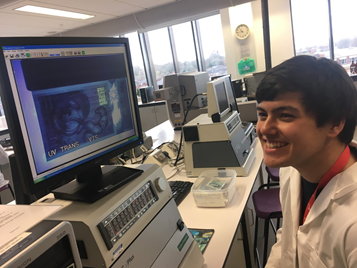
Ross specialises in trace DNA evidence profiling and the production of counterfeit items such as counterfeit currency. His main research is looking to develop more accurate techniques to help track the movement and production of counterfeit currency using forensic DNA techniques. The final aim of his research will be to establish a novel method to extract potential suspects’ DNA profiles from counterfeit currency.
Linkedin: https://www.linkedin.com/in/ross-kwok-b8182b144/
Researchgate: https://www.researchgate.net/profile/Ross_Kwok
Space
Lorna Markillie
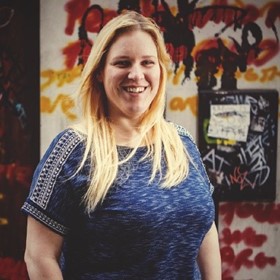
Lorna Markillie is currently working in the public sector in the South West of England. She has a Master of Science degree in Forensic Science and is currently working towards a PhD in the same arena. Her area of research will be looking at new technology with CSI training, how does this compare to traditional methods of training which CSI undertake currently. She has a passion for discovering new skills and upgrading my expertise.
LinkedIn: Lorna Markillie | LinkedIn
Research Gate: Lorna Markillie (researchgate.net)
Space
Dr Abdulrahman Oleiwi

Abdulrahman started his academic career in 2004 at Baghdad University, where he worked as a researcher/lecturer in molecular biology and DNA profiling. His forensic career started in 2007 when he joined the disaster victim identification (DVI) and mass grave management program in Iraq. After five years of working in that sector, he left to start on his PhD at the University of Wolverhampton. Currently, he is a lecturer in forensic genetics and forensic biology at Staffordshire University within the School of Law, Policing and Forensic where he lectures at all levels on Forensic Biology and DNA Profiling. His expertise includes DNA, DNA profiling, molecular biology, disaster victim identification, forensic biology, genetics, paternity, kinship analysis and paternal DNA. His broad research interests are within forensic genetics and its application to forensic investigations which includes but not limited to; DNA extraction and preservation, new and emerging DNA technologies, Biogeographical ancestry (BGA) and the use of genotypes for identity and phenotype prediction.
LinkedIn: http://linkedin.com/in/abdulrahman-oleiwi-30a51a2a
Space
Amy Osborne
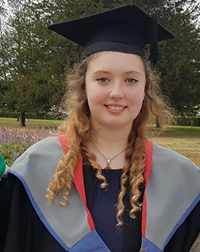
Amy is a PhD researcher whose research is focused on producing a method of automated detection and characterisation of microplastics using machine learning. She is also investigating ways to improve the retrieval and characterisation of microplastics compared to current methods used, including the use of Easylift® as a method of collecting microplastics from filters. She has expertise in microplastic and forensic fibre analysis. Amy has been working with the Rozalia project to sample and characterise microplastic concentration along the Hudson River.
Orchid: https://orcid.org/0000-0003-1096-5589
Researchgate: https://www.researchgate.net/profile/Amy_Osborne4
Linkedin: https://www.linkedin.com/in/amy-osborne-staffsuni/
Space
Elli Sarvari
Elli is currently undertaking her PhD in Forensic Science at Staffordshire University. Her research investigates barriers that effect victims of sexual offences decision to report to the police. The aim is to work collaboratively with local polices forces and specialists charities to use the victims voice. This area of research began as part of her undergraduate project where she compared current support provisions for victims of sexual offences to public expectations. As part of her MSci she undertook at placement with Staffordshire Police in their Vulnerable Victim Unit examining the use of Special Measures. It is hoped her research will improve victims experiences with the Criminal Justice System by putting victims rights first.
LinkedIn: https://www.linkedin.com/in/elli-sarvari-077021a9/
Twitter: https://twitter.com/ersarvari
Space
Dr Dave Skingsley

There are 3 research strands that form Dave’s research portfolio and they continue to provide a steady flow of publications. These strands are:
-
FTIR-ATR spectroscopic analysis of mixed compounds that protect and nourish epidermal surfaces.
-
Invertebrate taxonomy, Ecology and Forensic Entomology;
-
Pedagogic investigation of multi-media platforms the influence undergraduate learning in HE
He is involved with local and national bodies involved in the conservation of natural history (Staffordshire Invertebrate Group and BugLife to name two). In his spare time, he enjoys photography, gardening, and cycling.
ResearchGate: https://www.researchgate.net/profile/Dave_Skingsley
Space
Dr Samantha Spence

Sam has both academic and practical experience of the law, having worked in both local and international law firms, together with many years teaching experience in Higher Education. Her research interests include feminist theory and international human rights law, specifically the rights of women and other marginalised groups. Her main area of expertise examines witchcraft accusations and persecutions, and ritual attacks on a global scale. Over recent years, her work has involved working with the United Nations, to highlight abuses linked to harmful practices and she has been invited to the United Nations in Geneva on several occasions. Sam is a lecturer in law, in the School of Law, Policing and Forensics, and teaches and supervises students at all levels including: foundation, undergraduate, masters level and PhD supervision. She is a member of the Socio-Legal Studies Association and is a Fellow of the Higher Education Academy.
Twitter: @SamanthaS80
Space
Dr Luke Telford
Dr Luke Telford is a social researcher/critical criminologist. His PhD explored the rise of nationalistic sentiments in a deindustrialised locale. It utilised 25 in depth interviews alongside ethnographic vignettes to situate sentiments within a broader contextual backdrop. Luke has published in several academic journals on political dissatisfaction, deindustrialisation, current labour market conditions, Covid-19 and child abuse. His main interests are broad and include political economy, politics, labour markets, neoliberalism, qualitative research, problematic drug use/illicit drug markets and social theory.
Spac
Space
Laura Wilkinson
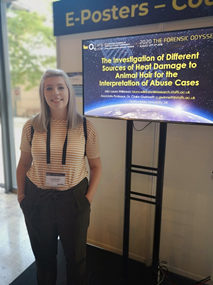
Laura’s PhD research investigates the interpretation of hair evidence for casework. The key aims of this research are to investigate the current status of hair evidence and to develop a new approach to aid in the analysis and interpretation of said evidence. Previous research has explored variation in animal hair, the development of identification method of heat damage in animal abuse cases and the creation of an animal hair reference collection for Wildlife Crime casework and training. Additionally, Laura has carried out collaborative research with the Transforming Forensics programme to investigate the impact of ISO 17025 accreditation in digital forensics.
Linkedin: https://www.linkedin.com/in/laurawilkinson816522b9/
ORCiD: https://orcid.org/0000-0003-4971-2247
Researchgate: https://www.researchgate.net/profile/Laura_Wilkinson6

